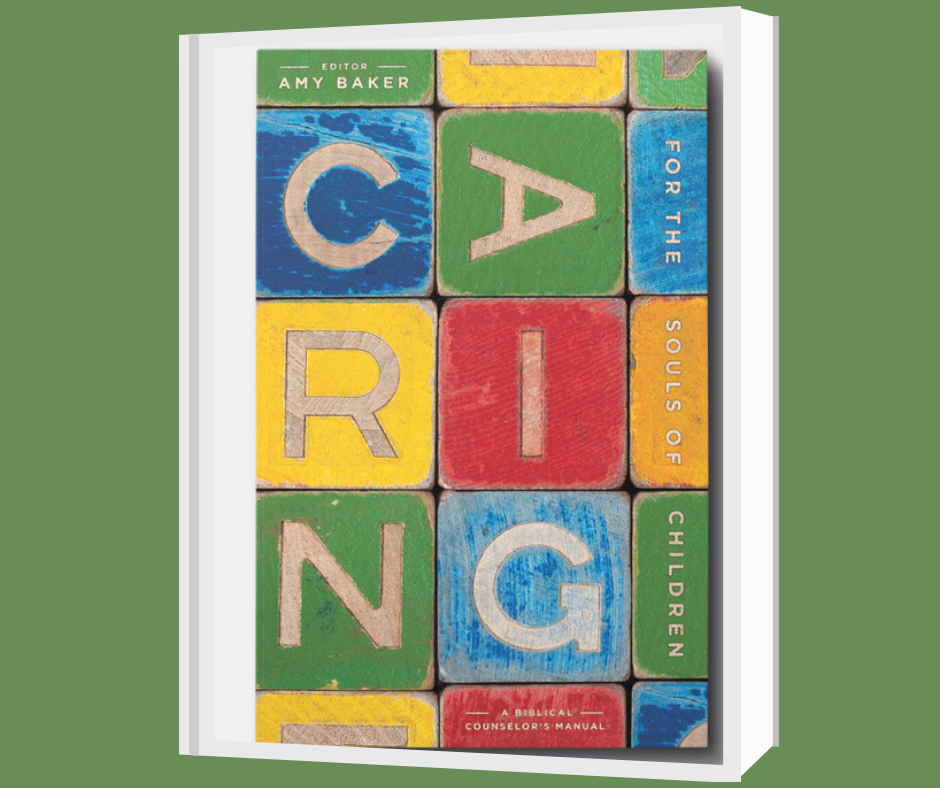Book Reviews
Caring for the Souls of Children: A Biblical Counselor’s Manual, edited by Amy Baker | Review by Rosa Byler

The goal of the biblical counseling movement was to help troubled Christians find soul care and counsel from fellow believers rather than secular psychologists or psychiatrists. For a number of years, their resources were mostly at the adult level. Amy Baker, longtime counselor and currently a member of the Biblical Counseling Coalition, developed an interest in counseling children through her time of service at a children’s home. Caring for the Souls of Children brings together the experience and wisdom of a robust team of counselors and pastors for a child-specific counseling resource.
The introductory chapters point out that children’s “struggles, hopes, and desires” are the same as those of adults, and they likewise need to hope in Christ; yet counsel for children needs to be suited to their age/developmental stage. Julie Lowe describes children’s stages of growth with general milestones of development but advises being alert to individual delays or accelerations.
Baker makes it clear that parents should be their children’s primary counselors; thus equipping the parents themselves is often the counselor’s first move. Each chapter ends with a lengthy “Word to Parents,” identifying common pitfalls and giving encouragement and guidance. When parental counsel alone is obviously not working well, she recommends having at least one parent present with the child in any formal sessions. The main section of the book deals with helping children in the areas of relationships, emotions, their bodies, and trauma.
Marty Machowski’s title “Leading Children to Jesus” may evoke fears of a “childhood evangelism” in which parents assume young children are converted after having them repeat certain truths. Nothing of that sort is afoot. Rather, parents’ part in God’s work of conversion is to share the gospel message clearly and simply with our children and pray for the Holy Spirit’s work in their lives. Age at conversion and the actual process will look different for individual children, and Machowski gives examples. The parent-child connection and childhood friendships are two significant relationships treated in this section.
By themselves, children are not likely to process well the distressing emotions of anxiety, anger, and shame. Anxiety seems to have increased in proportion to our overabundance of information about local and global calamities. Lowe points counselors to scripture, cautioning parents against short-term solutions that can worsen anxiety. Michael Emlet, a former physician, notes physiological weaknesses that may predispose children toward explosive anger yet emphasizes sinful anger’s disruptive power. Ed Welch explores the history of salvation and the “new clothing” of salvation; Garrett Higbee addresses counseling after suicide attempts.
Parents of earlier generations found it difficult to talk to their children about reproduction. Today’s parents and children face widespread confusion and misinformation about gender identity. Self-harming behaviors such as extreme eating patterns, substance abuse, and cutting are also common. “Children and Their Bodies” focuses on who God is, what His design is like, and seeing Jesus as our Helper. Charles Hodges, Tim Geiger, and Kevin Carson identify fear, idolatry, anger, bitterness, and other emotions that cause children to develop wrong and unrealistic narratives; “Joni and Friends” discuss the problems of disease or disability.
Chapters on traumatic childhood experiences such as sexual abuse, divorce, death, or adoption into a new family provide excellent help for parents. While Baker does not lay out a position on divorce, her encouragements are notably all to the abandoned spouse, especially if/when he remarries (remarriage by the deserted spouse is never mentioned). She demonstrates a remarkable understanding of nonresistance in her counsel to treat the erring spouse and his new companion with Christian charity and recommends requiring (and helping) the children to show respect and go for regular visits if asked.
A book of this length is intended as a basic primer and is limited in scope (for example, Baker does not address the legal aspects of dealing with abuse), but endnotes on the chapters suggest further resources. Definitely recommended for children’s counselors and teachers, but parents will also be encouraged both by what the book contains and in the impetus to seek additional help. It is always heartening to see Christians applying the Bible’s sufficiency to contemporary perplexities.